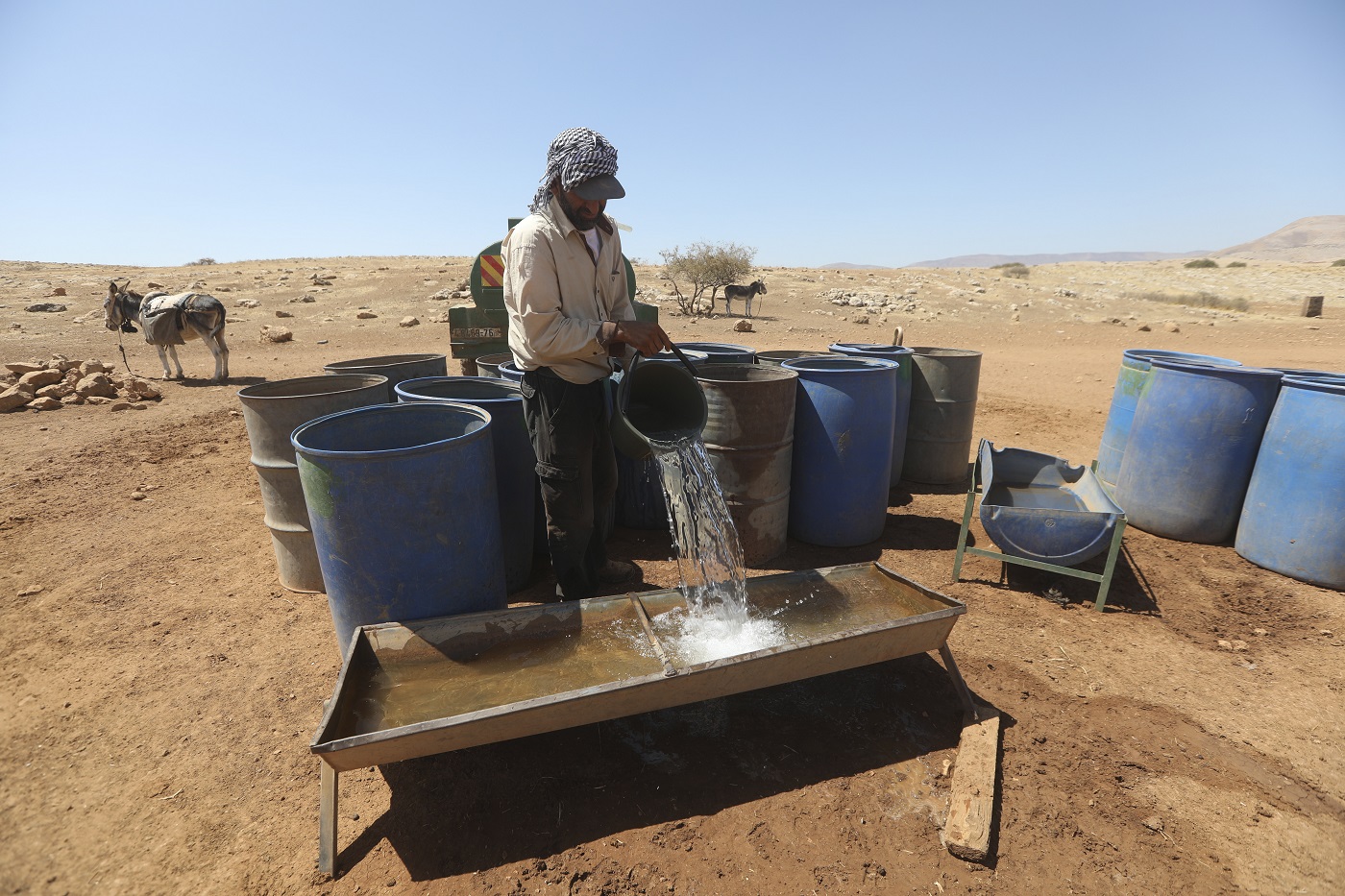
Vallée du Jourdain. Un éleveur remplit un abreuvoir. Les animaux et la végétation de la région sont durement touchés par le changement climatique et la pénurie d'eau, ceci affectant les communautés bédouines qui dépendent de l'agriculture et de l'élevage. Jordan Valley. A farmer filling a drinking trough. The impact of the water shortage in the northern Jordan Valley is not limited to the residents of the region only, but extends to reach the livestock and vegetation cover, which are the only sources of livelihood for the Bedouin communities. Site web du CICR, article, 18.08.2021. "One of the greatest challenges Palestinians face in the occupied Palestinian territories is climate change. Several climate-change trends are expected to intensify throughout the West Bank in the coming years. These include uneven rainfall distribution, a decrease in natural grazing areas and vegetation cover, droughts, and extreme weather conditions. The residents of the Jordan Valley suffer from lack of water, affecting crops and livestock, their only sources of livelihood, not to mention that they themselves cannot survive without drinkable water. Furthermore, they face restrictions on water access, imposed by the settlement expansion in the area. The ICRC is striving to develop special programs to support these communities and help them adapt to climate change by seeking sustainable alternatives. This ensures that people affected by climate change and conflict as well as environmental degradations receive the support they need to adapt to crises." ICRC website, article, 18.08.2021. "One of the greatest challenges Palestinians face in the occupied Palestinian territories is climate change. Several climate-change trends are expected to intensify throughout the West Bank in the coming years. These include uneven rainfall distribution, a decrease in natural grazing areas and vegetation cover, droughts, and extreme weather conditions. The residents of the Jordan Valley suffer from lack of water, affecting crops and livestock, their only sources of livelihood, not to mention that they themselves cannot survive without drinkable water. Furthermore, they face restrictions on water access, imposed by the settlement expansion in the area. The ICRC is striving to develop special programs to support these communities and help them adapt to climate change by seeking sustainable alternatives. This ensures that people affected by climate change and conflict as well as environmental degradations receive the support they need to adapt to crises."

